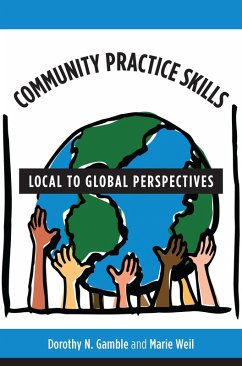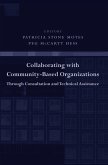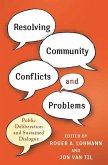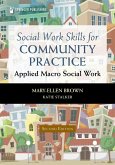Dorothy N. Gamble and Marie Weil differentiate among a range of intervention methods to provide a comprehensive and effective guide to working with communities. Presenting eight distinct models grounded in current practice and targeted toward specific goals, Gamble and Weil take an unusually inclusive step, combining their own extensive experience with numerous case and practice examples from talented practitioners in international and domestic settings.
The authors open with a discussion of the theories for community work and the values of social justice and human rights, concerns that have guided the work of activists from Jane Addams and Martin Luther King Jr. to Cesar Chavez, Wangari Maathai, and Vandana Shiva. They survey the concepts, knowledge, and perspectives influencing community practice and evaluation strategies. Descriptions of eight practice models follow, incorporating real-life case examples from many parts of the world and demonstrating multiple applications for each model as well as the primary roles, competencies, and skills used by the practitioner. Complexities and variations encourage readers to determine, through comparative analysis, which model at which time best fits the goals of a community group or organization, given the context, culture, social, economic, and environmental issues and opportunities for change. An accompanying workbook stressing empowerment strategies and skills development is also available from Columbia University Press.
The authors open with a discussion of the theories for community work and the values of social justice and human rights, concerns that have guided the work of activists from Jane Addams and Martin Luther King Jr. to Cesar Chavez, Wangari Maathai, and Vandana Shiva. They survey the concepts, knowledge, and perspectives influencing community practice and evaluation strategies. Descriptions of eight practice models follow, incorporating real-life case examples from many parts of the world and demonstrating multiple applications for each model as well as the primary roles, competencies, and skills used by the practitioner. Complexities and variations encourage readers to determine, through comparative analysis, which model at which time best fits the goals of a community group or organization, given the context, culture, social, economic, and environmental issues and opportunities for change. An accompanying workbook stressing empowerment strategies and skills development is also available from Columbia University Press.
Dieser Download kann aus rechtlichen Gründen nur mit Rechnungsadresse in A, D ausgeliefert werden.









